Phuket


Date:
Date:
Apr 10, 2025
Apr 10, 2025
Author:
Author:
Ben Pettit
Ben Pettit
Province:
Province:
Phuket
Phuket
District:
District:
Phuket
Phuket
Listen to this Guide
as a Conversation
Listen to this Guide
as a Conversation
0:00/1:34
0:00/1:34
Listen to this Guide
as a Conversation
0:00/1:34
Phuket Unfiltered: Your Guide to Island Life
Hey everyone, Ben here! So, you're thinking about Phuket? Awesome. After five years living the expat life in bustling Bangkok, I've escaped down to Phuket more times than I can count – easily over a dozen visits. While I haven't personally set up permanent shop there, I've got some great mates who have, living the island dream for years. To put this guide together, I didn't just rely on my holiday snaps; I sat down with them, got the real scoop, the good, the bad, and the surprising things about making Phuket your home.
Phuket often conjures images of stunning beaches, turquoise waters, and maybe a bit of wild nightlife. And yeah, it has all that. But living there day-to-day? That's a different story, full of amazing perks and a few unique island quirks you should know about. Think of this as your friendly heads-up, the chat you'd have with a buddy over a cold Chang beer before you take the plunge.
Getting the Phuket Vibe
First off, Phuket feels different from Bangkok. Obvious, right? Island vs. megacity. But it's more than just geography. Life tends to move at a slightly slower pace (well, outside of peak season traffic jams!). There's a definite focus on outdoor living – beaches, viewpoints, boat trips. It's undeniably beautiful, a tropical paradise that's also surprisingly developed with malls, international hospitals, and creature comforts. Yet, it's also intensely geared towards tourism, which shapes the experience in ways you don't feel quite as much in Bangkok's core residential areas. It also has distinct seasons – the glorious high season (roughly Nov-May) and the wetter, greener low season.
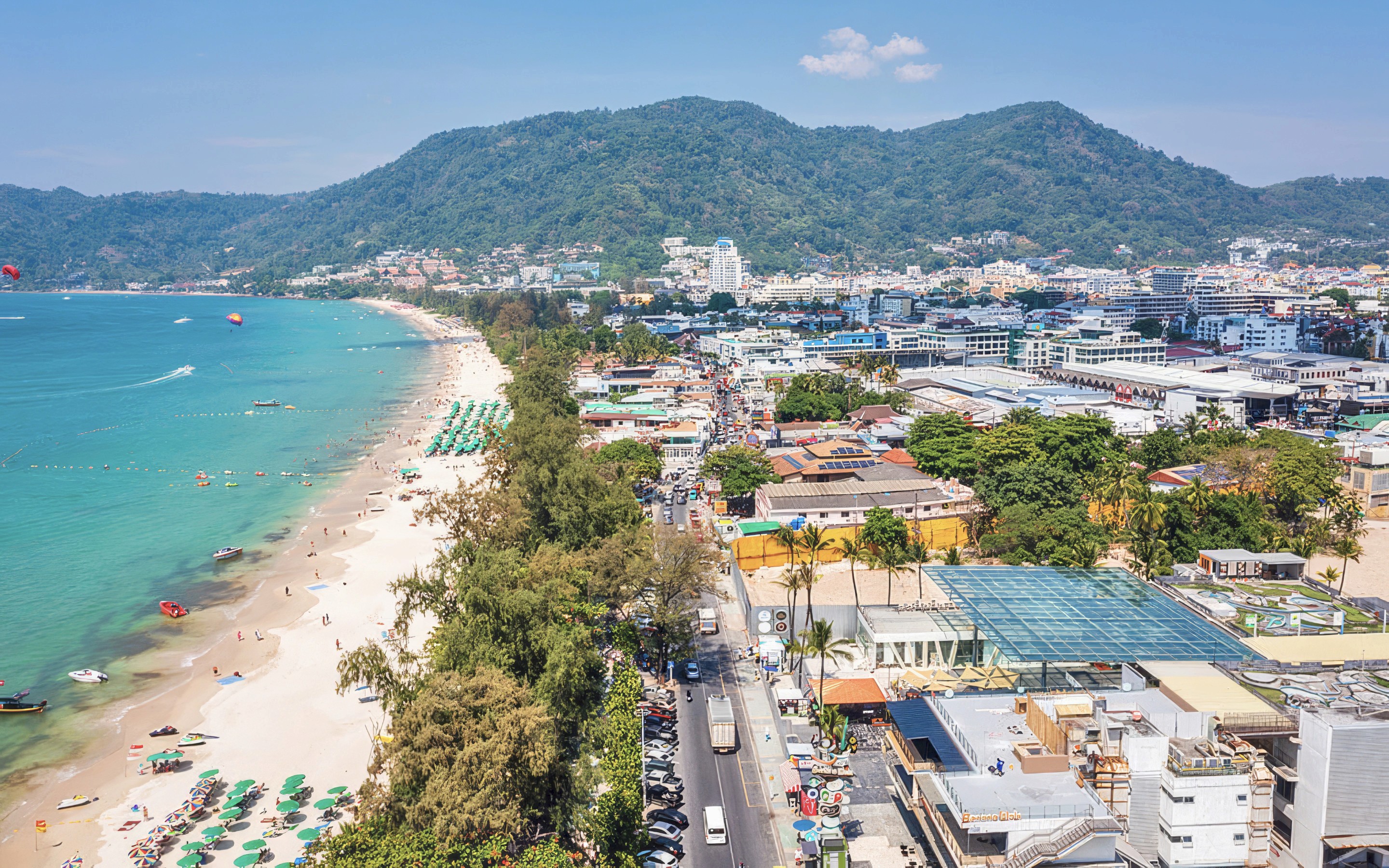
Phuket Life: The Big Picture (Pros & Cons)
Before we dive into specific areas, let's zoom out. What's the overall deal with living in Phuket as an expat? Based on my visits and what my friends living there tell me, here’s the honest breakdown:
The Upsides (Why My Mates Love Phuket):
Natural Beauty is Everywhere: Stunning beaches (from busy Kata to quieter Nai Harn), lush hills, incredible viewpoints, and easy access to surrounding islands (Phang Nga Bay, Phi Phi). It's postcard-perfect in many spots.
Outdoor Lifestyle: Perfect for beach lovers, divers, hikers, boaties, and anyone who enjoys warm weather year-round. Plenty of gyms, yoga studios, and Muay Thai camps too.
Developed Infrastructure: Good international hospitals, modern shopping malls, reliable internet, and an international airport make life comfortable and convenient.
Vibrant Expat Community: Easy to connect with fellow expats from all over the world through clubs, events, and online groups. Locals are generally friendly and welcoming.
Foodie Heaven (Island Style): Great seafood, excellent Thai food (both street-side and in restaurants), plus a growing range of international cuisine.
Villa Living: Phuket is famous for its beautiful villas, often with private pools and sea views. Owning one (usually via leasehold or Thai spouse) is a popular dream for retirees.
Lower Season Perks: During the wet season (roughly June-Oct), the island is greener, less crowded, and accommodation can be cheaper.
The Downsides (The Reality Check):
Cost of Living: Generally higher than Bangkok or Chiang Mai, especially for housing (rent/purchase) and imported goods. While local life can be affordable, replicating a Western lifestyle costs more. Housing costs have particularly inflated.
Traffic & Transport Woes: Traffic can be chaotic and frustrating, especially in central areas or during high season. Public transport options are limited and often inconvenient/expensive. Many rely on scooters, which requires confidence and caution on sometimes challenging roads.
Wet Season Reality – It Gets Wet (Approx. June-Oct): Your two-week holiday might only see brief showers, but living through the monsoon season is different. Expect periods of heavy, prolonged rain, especially around September/October. This isn't just inconvenient; it leads to frequent, localized flooding. Roads in low-lying areas or those with poor drainage (a common issue) can quickly turn into rivers, making travel difficult, sometimes dangerous, and occasionally cutting off access. While floods often drain relatively quickly once the rain stops (within hours or a day, especially near the sea), driving through flooded streets is a regular wet season occurrence for residents. Landslides in hilly areas are also a risk during heavy downpours. It's a recurring challenge that goes beyond just having your beach plans rained out.
Tourism Overload: High tourist numbers, especially in peak season, can make popular areas feel crowded and sometimes detract from the authentic Thai experience.
Infrastructure Strain & Management Issues: Rapid development hasn't always kept pace with infrastructure needs. Issues like poorly managed roads, waste management concerns, and inconsistent rule enforcement are sometimes reported.
Changing Demographics & Social Dynamics: There's been a very noticeable influx of specific nationalities, particularly Russians, in recent years. This has shifted the demographics in certain areas and reportedly led to some social friction and changes in local businesses.
Job Market Limitations: Finding legal, well-paid work can be challenging for expats. Common routes are teaching, hospitality/real estate, or remote/online work.
Exploring Key Expat Areas: Where Might You Fit In?
Phuket isn't monolithic. Different areas have distinct vibes. Here’s a quick rundown based on what I've seen and heard from my resident mates:
Rawai / Nai Harn (The Southern Tip)
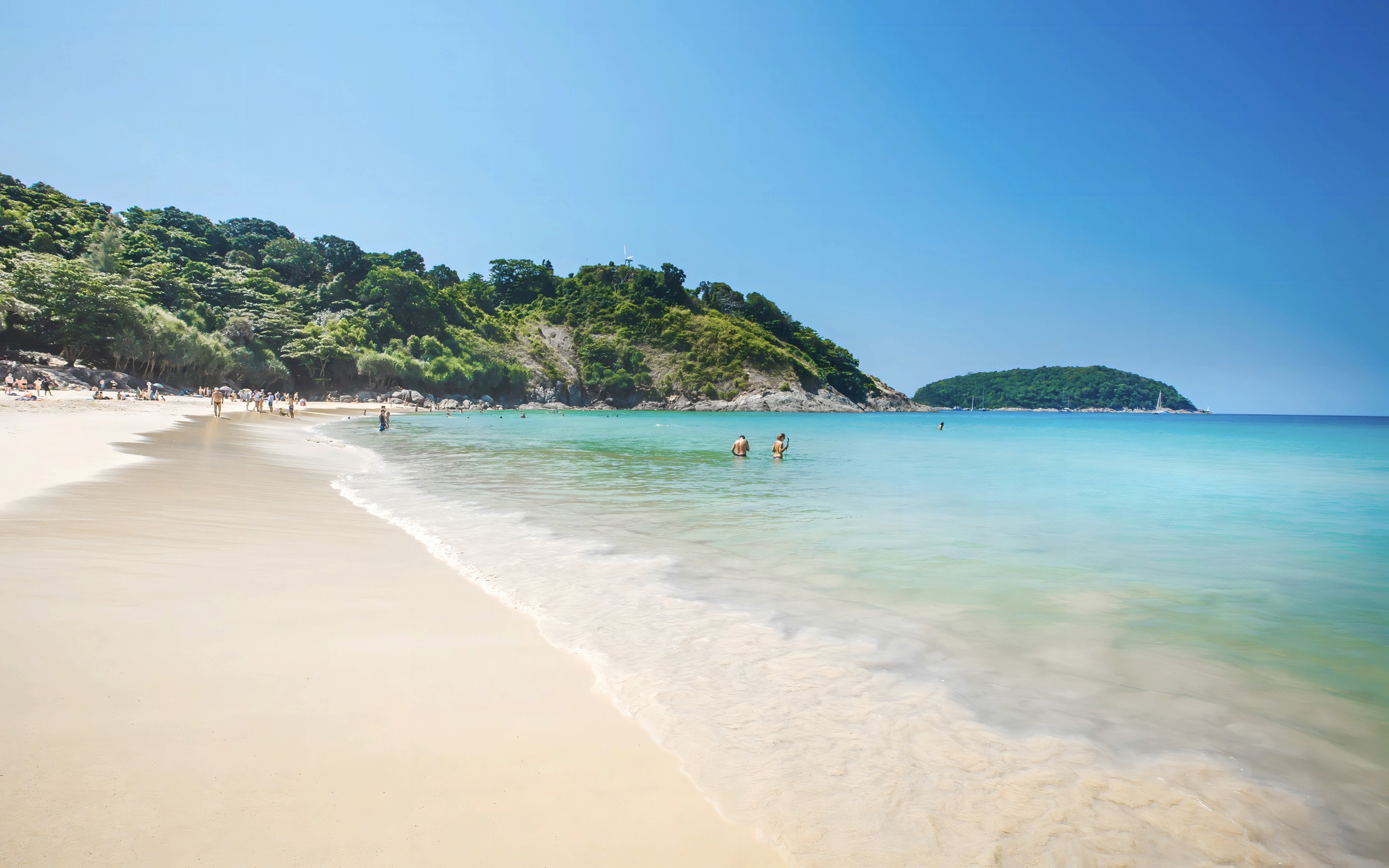
The Vibe: Popular with long-term expats and retirees seeking a slightly quieter, more laid-back beach lifestyle. Nai Harn beach is stunning and less frantic than west coast hotspots. Rawai has a more local feel mixed with expat amenities, great seafood restaurants along the front. Often reported as less flood-prone than other areas.
Who Lives Here: Retirees, families, long-termers who value beach proximity but not the intense nightlife.
Features: Beautiful Nai Harn beach, Promthep Cape viewpoint, good mix of restaurants and bars, local markets.
Cost: Can be pricier, especially near the beach, but generally offers good value compared to prime west coast spots. One bedroom rental ranges from ฿30,000 - ฿60,000 ($900 - $1800 USD) per month.
Pro Tip: This area feels a bit removed from the island's central buzz, which is a pro for many. Renting a scooter or car is pretty essential for getting around easily from here.
Chalong
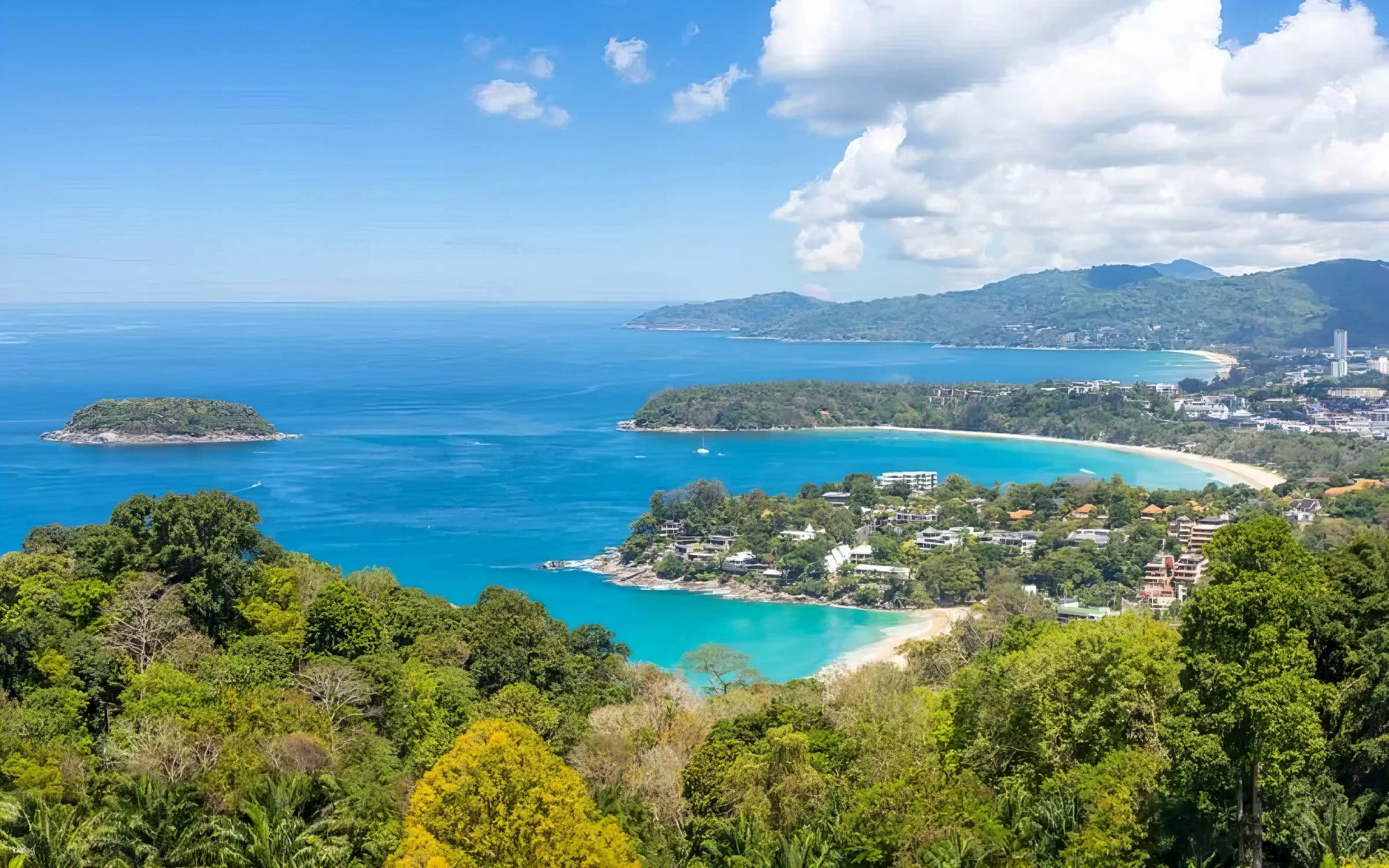
The Vibe: A bustling local hub on the southeast side, known for its pier (gateway to island trips), Muay Thai gyms (Soi Ta-ied is "fight street"), and more residential feel. Less tourist-focused than the west coast beaches.
Who Lives Here: Expats training Muay Thai, boat owners, those seeking slightly lower rents, and folks wanting a more "local" base with good central access.
Features: Chalong Pier, Wat Chalong temple, Big Buddha nearby, massive fitness/Muay Thai scene on Soi Ta-ied, Villa Market & other supermarkets.
Cost: Generally more affordable rentals than prime beach areas. One bedroom rental ranges from ฿25,000 - ฿50,000 ($750 - $1500 USD) per month.
Pro Tip: If you're serious about Muay Thai training, living near Soi Ta-ied in Chalong puts you right in the heart of the action. Just be prepared for the intense fitness culture!
Kathu:
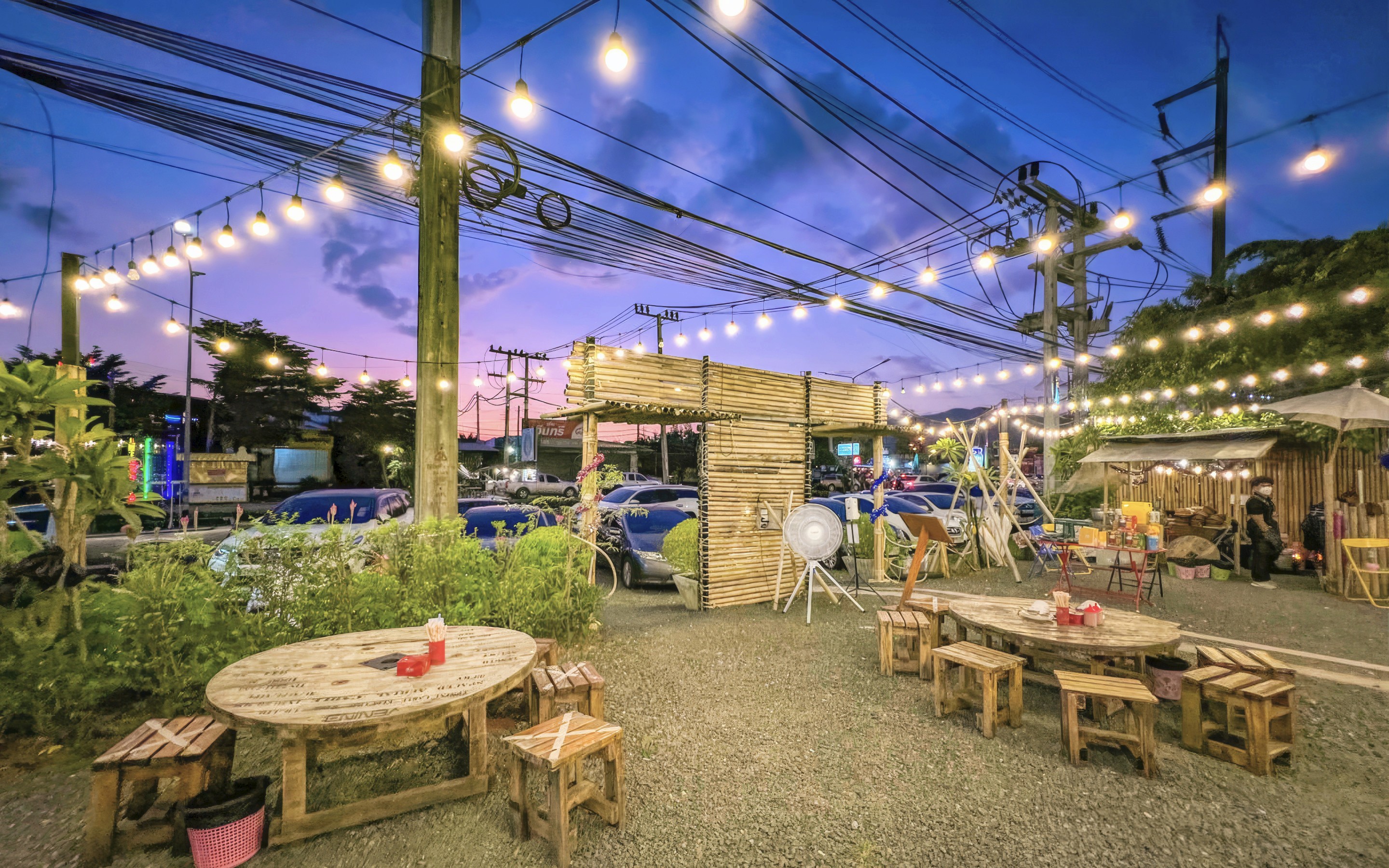
The Vibe: More inland and centrally located, offering a blend of local Thai life and expat convenience. It feels less touristy but provides easy access to both Phuket Town and Patong. Prone to flooding in certain areas during heavy rain.
Who Lives Here: Expats seeking value, convenience, and a more central location away from the main beach crowds. Families also find good options here.
Features: Close to shopping malls (Central Phuket), golf courses, international schools, local markets. Offers a good balance.
Cost: Considered one of the more budget-friendly areas for comfortable living. One bedroom rental ranges from ฿20,000 - ฿50,000 ($600 - $1500 USD) per month.
Pro Tip: Kathu's central location is its superpower. You can get to most parts of the island relatively easily (traffic and flooding permitting!), making it a practical base for exploring or commuting.
Bangtao / Cherngtalay / Laguna
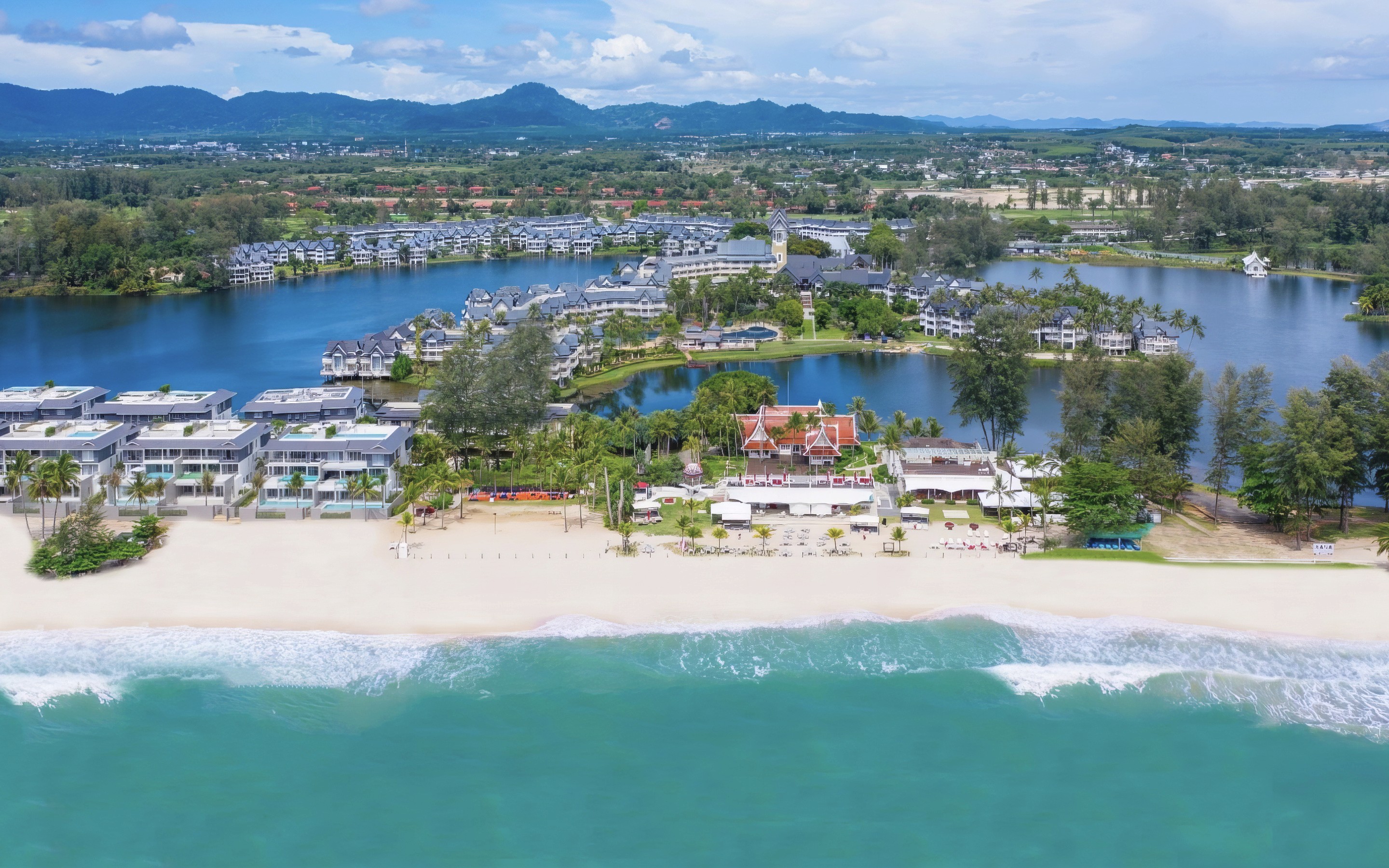
The Vibe: An upscale area on the northwest coast. Laguna Phuket is a large, integrated resort complex with luxury hotels, golf courses, and high-end villas/condos. Cherngtalay village nearby offers trendy cafes, boutiques, and restaurants (like Boat Avenue). Bangtao Beach is long and beautiful. Certain parts, especially lower-lying roads, can experience flooding.
Who Lives Here: Affluent expats, families (due to proximity to international schools and gated communities), retirees seeking luxury and convenience.
Features: Laguna complex, Boat Avenue shopping/dining precinct, Porto de Phuket mall, Blue Tree water park nearby, Bangtao Beach.
Cost: Generally one of the more expensive areas on the island. One bedroom rental ranges from ฿40,000 - ฿60,000 ($1200 - $1800 USD) per month.
Pro Tip: This area feels very polished and caters heavily to expats and high-end tourists. If you're looking for a bubble of comfort and luxury with lots of Western amenities, this is it. Be prepared for the price tag, though.
Phuket Town
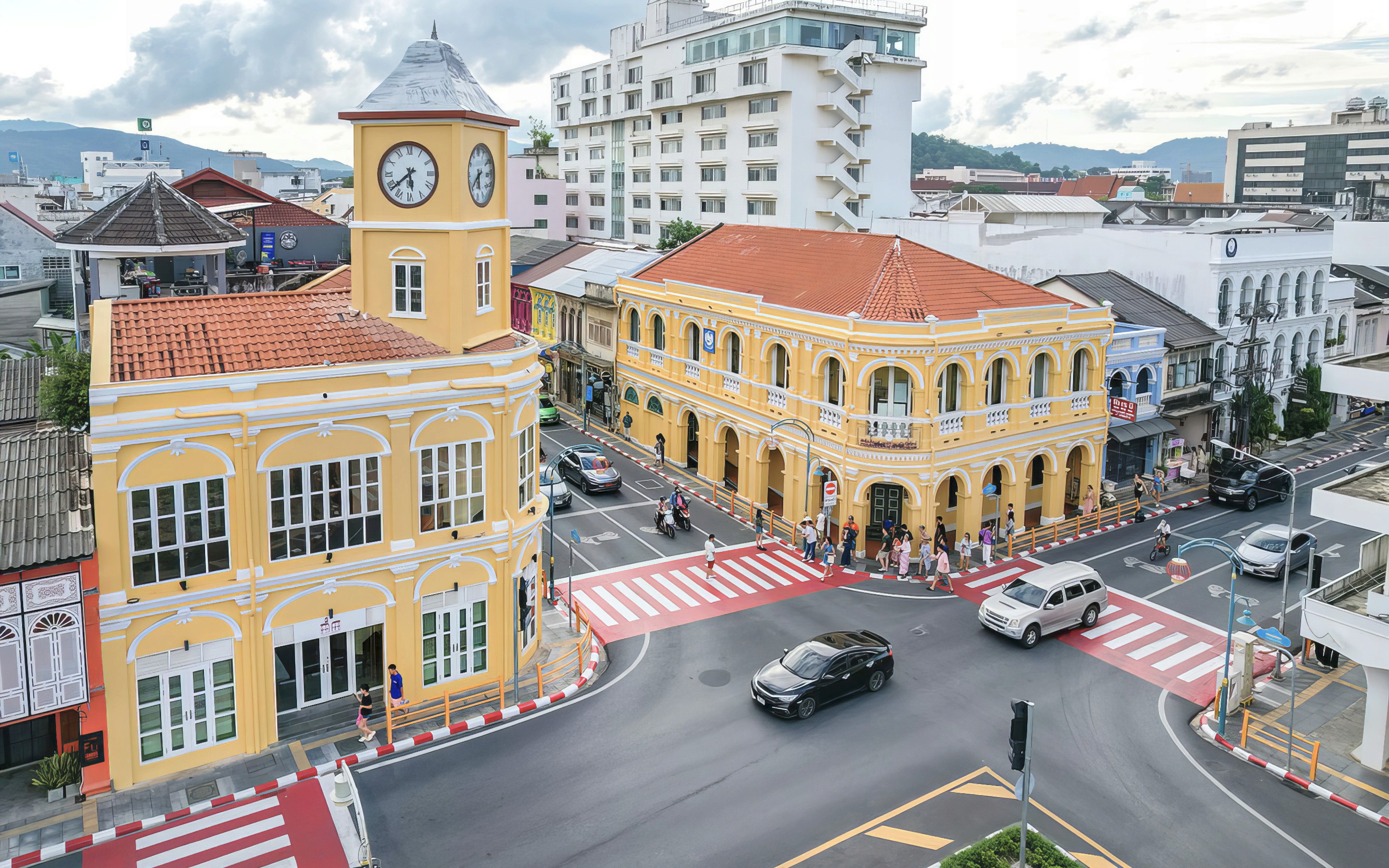
The Vibe: The island's historical and administrative center. Offers charming Sino-Portuguese architecture, quirky cafes, local markets, and a more authentic Thai city feel compared to the beach resorts. Can experience flooding in certain central areas.
Who Lives Here: Expats wanting a more local, less tourist-centric experience, those on tighter budgets, artists, and people working in town.
Features: Old Town architecture, Sunday Walking Street market, local eateries, government offices, cheaper rentals.
Cost: Generally more affordable than the main beach areas. One bedroom rental ranges from ฿25,000 - ฿50,000 ($750 - $1500 USD) per month.
Pro Tip: Phuket Town has a unique charm totally different from the beaches. Spend a weekend exploring the Old Town – you might find its blend of history and local life appealing if non-stop beach isn't your priority.
Patong:
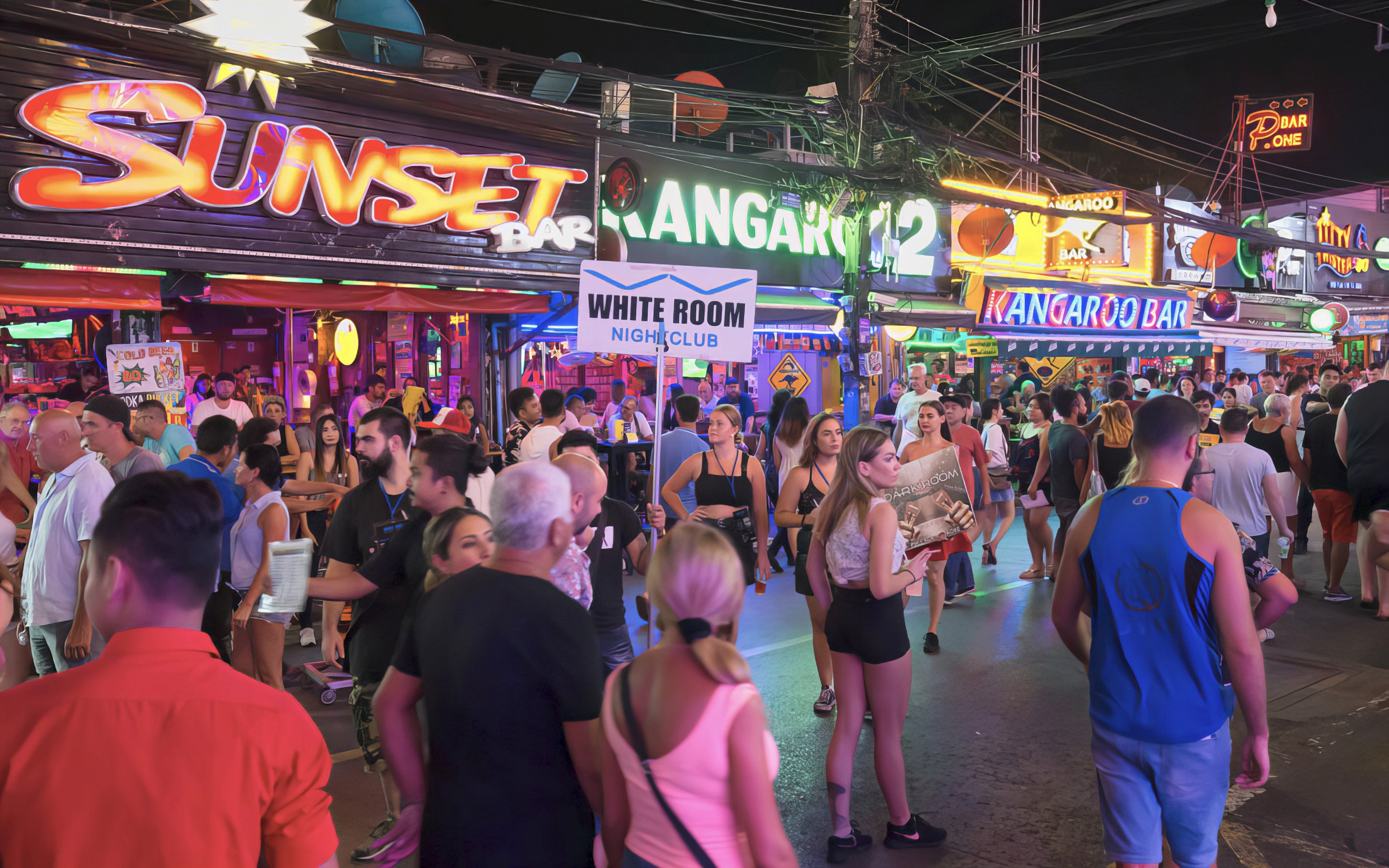
The Vibe: Phuket's undisputed nightlife and entertainment capital. Famous for Bangla Road, bustling beaches, huge shopping mall (Jungceylon), and endless bars, restaurants, and hotels. It's loud, busy, and very tourist-heavy. Surprisingly, often reported as less affected by major flooding events compared to other areas like Kamala or the middle of the island, though localized flooding can still occur.
Who Lives Here: Younger expats, digital nomads drawn to the energy and convenience, those working in the tourism/nightlife industry.
Features: Bangla Road nightlife, Patong Beach, Jungceylon & Central Patong malls, vast array of dining and entertainment.
Cost: Accommodation varies wildly from budget guesthouses to high-end hotels/condos. Day-to-day costs can be higher due to the tourist focus. One bedroom rental ranges from ฿35,000 - ฿70,000 ($1050 - $2100 USD) per month.
Pro Tip: Patong is intense. Fun for a night out, but living there requires embracing the chaos. Many expats prefer to live elsewhere and visit Patong when they want the buzz.
The Real Scoop: What My Friends Really Say
Beyond the brochures, here are a few recurring themes from my chats with Phuket expats:
The Russian Factor is Real: It's not just hearsay. The large influx has changed the feel of certain areas. You'll hear Russian spoken constantly in places like Karon/Kata/Chalong. Some businesses now cater exclusively to them. While many integrate fine, my friends mention noticing a difference in social interactions and sometimes feeling like outsiders in previously mixed communities. It's a complex issue with economic impacts too.
"Island Price" is a Thing: Be prepared for costs, especially rent, to feel higher than you might expect for Thailand. Phuket operates on its own supply/demand, heavily influenced by tourism and foreign investment. Don't expect Chiang Mai prices.
Infrastructure Groans: While generally good, the island's infrastructure (roads, waste management, sometimes utilities) feels strained, especially during peak times or heavy rain. Locals and long-term expats often grumble about the lack of proactive planning.
Finding Your Tribe Takes Effort: While the expat community is large, the transient nature of tourism means friendships can sometimes feel temporary. Building a solid, long-term support network requires actively joining clubs, attending events, and putting yourself out there.
So, How Do You Choose? Let's Get Personal
Okay, island dreamer! Thinking about where you might land? Ask yourself these questions:
What's your Phuket fantasy? Laid-back beach bum (Rawai)? Fitness fanatic (Chalong)? Luxury resort lover (Bangtao)? City explorer with beach access (Kathu/Phuket Town)? Non-stop party animal (Patong)?
What's your budget honestly telling you? Phuket can drain your wallet if you're not careful. Factor in the "island price."
How vital is being on the beach? Living beachfront is pricey. Are you happy being a short ride away?
Transport tolerance? Comfortable on a scooter? Can you handle chaotic traffic and the reality of navigating potentially flooded roads during the wet season?
Amenity checklist? Need specific schools, malls, gyms, or hospitals nearby?
Tolerance level? How do you feel about crowds, tourist-heavy environments, infrastructure hiccups, and dealing with significant wet season disruptions like flooding? Can you handle intense heat and humidity?
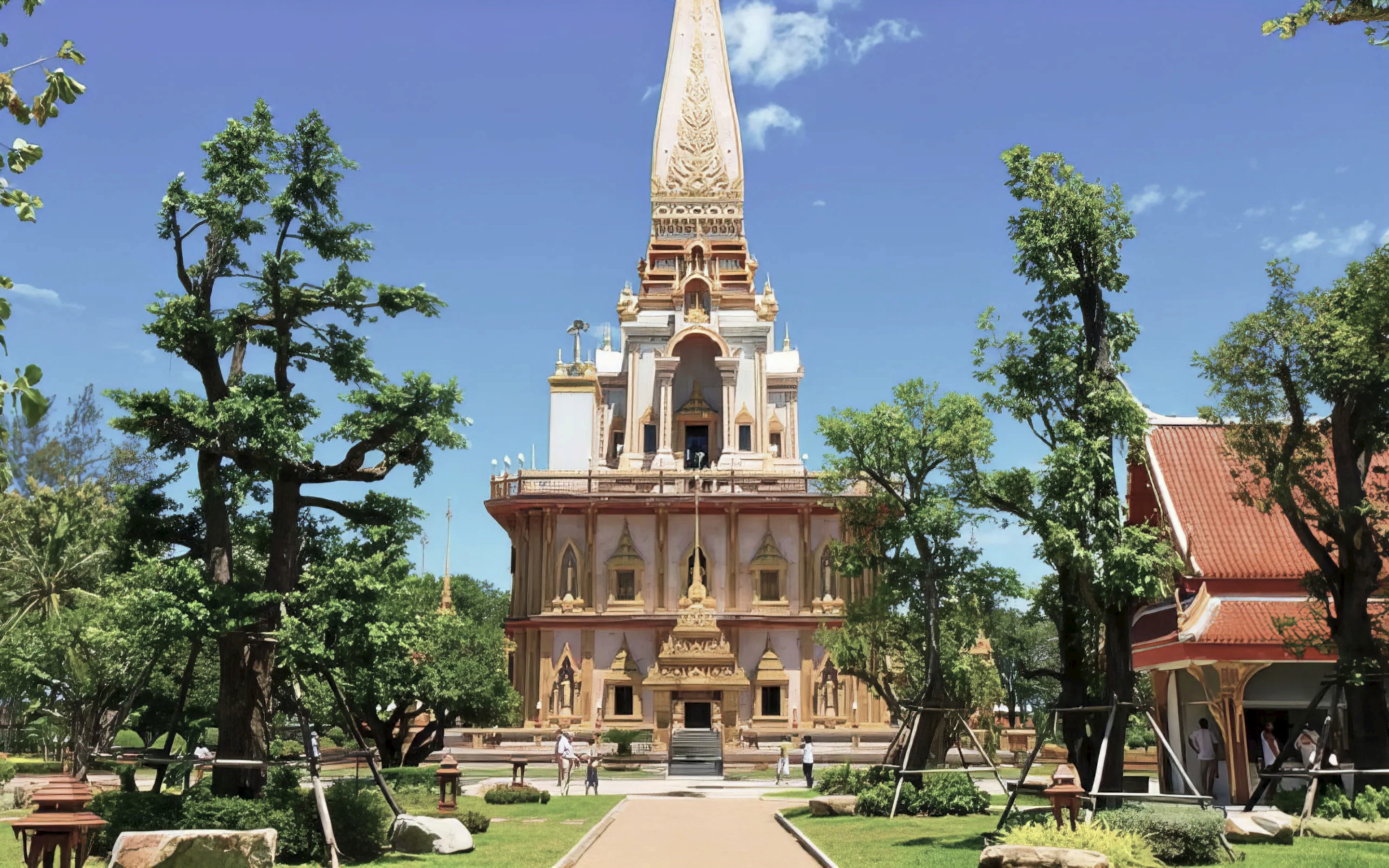
My Final Thoughts (For Now!)
Phuket is an amazing place, truly beautiful with a lot to offer expats. But it's not perfect, and it's definitely not the sleepy, untouched island it might have been decades ago. It's a dynamic, sometimes challenging, but often rewarding place to build a life.
Like I always say, nothing beats putting boots (or flip-flops) on the ground. Come visit, rent a scooter (carefully!), explore these different areas, chat with people, and see what resonates with you. What feels like paradise to one person might feel like tourist-trap hell to another!
Ready to explore Phuket further?
We'll be adding more detailed guides on specific Phuket areas soon! Keep an eye on our library
Got questions based on your specific situation? Want to chat more about the pros and cons? Drop me a line – helping folks figure out their Thailand adventure is what I love to do.
Good luck with your Phuket dreaming – Chok dee!
Phuket Unfiltered: Your Guide to Island Life
Hey everyone, Ben here! So, you're thinking about Phuket? Awesome. After five years living the expat life in bustling Bangkok, I've escaped down to Phuket more times than I can count – easily over a dozen visits. While I haven't personally set up permanent shop there, I've got some great mates who have, living the island dream for years. To put this guide together, I didn't just rely on my holiday snaps; I sat down with them, got the real scoop, the good, the bad, and the surprising things about making Phuket your home.
Phuket often conjures images of stunning beaches, turquoise waters, and maybe a bit of wild nightlife. And yeah, it has all that. But living there day-to-day? That's a different story, full of amazing perks and a few unique island quirks you should know about. Think of this as your friendly heads-up, the chat you'd have with a buddy over a cold Chang beer before you take the plunge.
Getting the Phuket Vibe
First off, Phuket feels different from Bangkok. Obvious, right? Island vs. megacity. But it's more than just geography. Life tends to move at a slightly slower pace (well, outside of peak season traffic jams!). There's a definite focus on outdoor living – beaches, viewpoints, boat trips. It's undeniably beautiful, a tropical paradise that's also surprisingly developed with malls, international hospitals, and creature comforts. Yet, it's also intensely geared towards tourism, which shapes the experience in ways you don't feel quite as much in Bangkok's core residential areas. It also has distinct seasons – the glorious high season (roughly Nov-May) and the wetter, greener low season.

Phuket Life: The Big Picture (Pros & Cons)
Before we dive into specific areas, let's zoom out. What's the overall deal with living in Phuket as an expat? Based on my visits and what my friends living there tell me, here’s the honest breakdown:
The Upsides (Why My Mates Love Phuket):
Natural Beauty is Everywhere: Stunning beaches (from busy Kata to quieter Nai Harn), lush hills, incredible viewpoints, and easy access to surrounding islands (Phang Nga Bay, Phi Phi). It's postcard-perfect in many spots.
Outdoor Lifestyle: Perfect for beach lovers, divers, hikers, boaties, and anyone who enjoys warm weather year-round. Plenty of gyms, yoga studios, and Muay Thai camps too.
Developed Infrastructure: Good international hospitals, modern shopping malls, reliable internet, and an international airport make life comfortable and convenient.
Vibrant Expat Community: Easy to connect with fellow expats from all over the world through clubs, events, and online groups. Locals are generally friendly and welcoming.
Foodie Heaven (Island Style): Great seafood, excellent Thai food (both street-side and in restaurants), plus a growing range of international cuisine.
Villa Living: Phuket is famous for its beautiful villas, often with private pools and sea views. Owning one (usually via leasehold or Thai spouse) is a popular dream for retirees.
Lower Season Perks: During the wet season (roughly June-Oct), the island is greener, less crowded, and accommodation can be cheaper.
The Downsides (The Reality Check):
Cost of Living: Generally higher than Bangkok or Chiang Mai, especially for housing (rent/purchase) and imported goods. While local life can be affordable, replicating a Western lifestyle costs more. Housing costs have particularly inflated.
Traffic & Transport Woes: Traffic can be chaotic and frustrating, especially in central areas or during high season. Public transport options are limited and often inconvenient/expensive. Many rely on scooters, which requires confidence and caution on sometimes challenging roads.
Wet Season Reality – It Gets Wet (Approx. June-Oct): Your two-week holiday might only see brief showers, but living through the monsoon season is different. Expect periods of heavy, prolonged rain, especially around September/October. This isn't just inconvenient; it leads to frequent, localized flooding. Roads in low-lying areas or those with poor drainage (a common issue) can quickly turn into rivers, making travel difficult, sometimes dangerous, and occasionally cutting off access. While floods often drain relatively quickly once the rain stops (within hours or a day, especially near the sea), driving through flooded streets is a regular wet season occurrence for residents. Landslides in hilly areas are also a risk during heavy downpours. It's a recurring challenge that goes beyond just having your beach plans rained out.
Tourism Overload: High tourist numbers, especially in peak season, can make popular areas feel crowded and sometimes detract from the authentic Thai experience.
Infrastructure Strain & Management Issues: Rapid development hasn't always kept pace with infrastructure needs. Issues like poorly managed roads, waste management concerns, and inconsistent rule enforcement are sometimes reported.
Changing Demographics & Social Dynamics: There's been a very noticeable influx of specific nationalities, particularly Russians, in recent years. This has shifted the demographics in certain areas and reportedly led to some social friction and changes in local businesses.
Job Market Limitations: Finding legal, well-paid work can be challenging for expats. Common routes are teaching, hospitality/real estate, or remote/online work.
Exploring Key Expat Areas: Where Might You Fit In?
Phuket isn't monolithic. Different areas have distinct vibes. Here’s a quick rundown based on what I've seen and heard from my resident mates:
Rawai / Nai Harn (The Southern Tip)

The Vibe: Popular with long-term expats and retirees seeking a slightly quieter, more laid-back beach lifestyle. Nai Harn beach is stunning and less frantic than west coast hotspots. Rawai has a more local feel mixed with expat amenities, great seafood restaurants along the front. Often reported as less flood-prone than other areas.
Who Lives Here: Retirees, families, long-termers who value beach proximity but not the intense nightlife.
Features: Beautiful Nai Harn beach, Promthep Cape viewpoint, good mix of restaurants and bars, local markets.
Cost: Can be pricier, especially near the beach, but generally offers good value compared to prime west coast spots. One bedroom rental ranges from ฿30,000 - ฿60,000 ($900 - $1800 USD) per month.
Pro Tip: This area feels a bit removed from the island's central buzz, which is a pro for many. Renting a scooter or car is pretty essential for getting around easily from here.
Chalong

The Vibe: A bustling local hub on the southeast side, known for its pier (gateway to island trips), Muay Thai gyms (Soi Ta-ied is "fight street"), and more residential feel. Less tourist-focused than the west coast beaches.
Who Lives Here: Expats training Muay Thai, boat owners, those seeking slightly lower rents, and folks wanting a more "local" base with good central access.
Features: Chalong Pier, Wat Chalong temple, Big Buddha nearby, massive fitness/Muay Thai scene on Soi Ta-ied, Villa Market & other supermarkets.
Cost: Generally more affordable rentals than prime beach areas. One bedroom rental ranges from ฿25,000 - ฿50,000 ($750 - $1500 USD) per month.
Pro Tip: If you're serious about Muay Thai training, living near Soi Ta-ied in Chalong puts you right in the heart of the action. Just be prepared for the intense fitness culture!
Kathu:

The Vibe: More inland and centrally located, offering a blend of local Thai life and expat convenience. It feels less touristy but provides easy access to both Phuket Town and Patong. Prone to flooding in certain areas during heavy rain.
Who Lives Here: Expats seeking value, convenience, and a more central location away from the main beach crowds. Families also find good options here.
Features: Close to shopping malls (Central Phuket), golf courses, international schools, local markets. Offers a good balance.
Cost: Considered one of the more budget-friendly areas for comfortable living. One bedroom rental ranges from ฿20,000 - ฿50,000 ($600 - $1500 USD) per month.
Pro Tip: Kathu's central location is its superpower. You can get to most parts of the island relatively easily (traffic and flooding permitting!), making it a practical base for exploring or commuting.
Bangtao / Cherngtalay / Laguna

The Vibe: An upscale area on the northwest coast. Laguna Phuket is a large, integrated resort complex with luxury hotels, golf courses, and high-end villas/condos. Cherngtalay village nearby offers trendy cafes, boutiques, and restaurants (like Boat Avenue). Bangtao Beach is long and beautiful. Certain parts, especially lower-lying roads, can experience flooding.
Who Lives Here: Affluent expats, families (due to proximity to international schools and gated communities), retirees seeking luxury and convenience.
Features: Laguna complex, Boat Avenue shopping/dining precinct, Porto de Phuket mall, Blue Tree water park nearby, Bangtao Beach.
Cost: Generally one of the more expensive areas on the island. One bedroom rental ranges from ฿40,000 - ฿60,000 ($1200 - $1800 USD) per month.
Pro Tip: This area feels very polished and caters heavily to expats and high-end tourists. If you're looking for a bubble of comfort and luxury with lots of Western amenities, this is it. Be prepared for the price tag, though.
Phuket Town

The Vibe: The island's historical and administrative center. Offers charming Sino-Portuguese architecture, quirky cafes, local markets, and a more authentic Thai city feel compared to the beach resorts. Can experience flooding in certain central areas.
Who Lives Here: Expats wanting a more local, less tourist-centric experience, those on tighter budgets, artists, and people working in town.
Features: Old Town architecture, Sunday Walking Street market, local eateries, government offices, cheaper rentals.
Cost: Generally more affordable than the main beach areas. One bedroom rental ranges from ฿25,000 - ฿50,000 ($750 - $1500 USD) per month.
Pro Tip: Phuket Town has a unique charm totally different from the beaches. Spend a weekend exploring the Old Town – you might find its blend of history and local life appealing if non-stop beach isn't your priority.
Patong:

The Vibe: Phuket's undisputed nightlife and entertainment capital. Famous for Bangla Road, bustling beaches, huge shopping mall (Jungceylon), and endless bars, restaurants, and hotels. It's loud, busy, and very tourist-heavy. Surprisingly, often reported as less affected by major flooding events compared to other areas like Kamala or the middle of the island, though localized flooding can still occur.
Who Lives Here: Younger expats, digital nomads drawn to the energy and convenience, those working in the tourism/nightlife industry.
Features: Bangla Road nightlife, Patong Beach, Jungceylon & Central Patong malls, vast array of dining and entertainment.
Cost: Accommodation varies wildly from budget guesthouses to high-end hotels/condos. Day-to-day costs can be higher due to the tourist focus. One bedroom rental ranges from ฿35,000 - ฿70,000 ($1050 - $2100 USD) per month.
Pro Tip: Patong is intense. Fun for a night out, but living there requires embracing the chaos. Many expats prefer to live elsewhere and visit Patong when they want the buzz.
The Real Scoop: What My Friends Really Say
Beyond the brochures, here are a few recurring themes from my chats with Phuket expats:
The Russian Factor is Real: It's not just hearsay. The large influx has changed the feel of certain areas. You'll hear Russian spoken constantly in places like Karon/Kata/Chalong. Some businesses now cater exclusively to them. While many integrate fine, my friends mention noticing a difference in social interactions and sometimes feeling like outsiders in previously mixed communities. It's a complex issue with economic impacts too.
"Island Price" is a Thing: Be prepared for costs, especially rent, to feel higher than you might expect for Thailand. Phuket operates on its own supply/demand, heavily influenced by tourism and foreign investment. Don't expect Chiang Mai prices.
Infrastructure Groans: While generally good, the island's infrastructure (roads, waste management, sometimes utilities) feels strained, especially during peak times or heavy rain. Locals and long-term expats often grumble about the lack of proactive planning.
Finding Your Tribe Takes Effort: While the expat community is large, the transient nature of tourism means friendships can sometimes feel temporary. Building a solid, long-term support network requires actively joining clubs, attending events, and putting yourself out there.
So, How Do You Choose? Let's Get Personal
Okay, island dreamer! Thinking about where you might land? Ask yourself these questions:
What's your Phuket fantasy? Laid-back beach bum (Rawai)? Fitness fanatic (Chalong)? Luxury resort lover (Bangtao)? City explorer with beach access (Kathu/Phuket Town)? Non-stop party animal (Patong)?
What's your budget honestly telling you? Phuket can drain your wallet if you're not careful. Factor in the "island price."
How vital is being on the beach? Living beachfront is pricey. Are you happy being a short ride away?
Transport tolerance? Comfortable on a scooter? Can you handle chaotic traffic and the reality of navigating potentially flooded roads during the wet season?
Amenity checklist? Need specific schools, malls, gyms, or hospitals nearby?
Tolerance level? How do you feel about crowds, tourist-heavy environments, infrastructure hiccups, and dealing with significant wet season disruptions like flooding? Can you handle intense heat and humidity?

My Final Thoughts (For Now!)
Phuket is an amazing place, truly beautiful with a lot to offer expats. But it's not perfect, and it's definitely not the sleepy, untouched island it might have been decades ago. It's a dynamic, sometimes challenging, but often rewarding place to build a life.
Like I always say, nothing beats putting boots (or flip-flops) on the ground. Come visit, rent a scooter (carefully!), explore these different areas, chat with people, and see what resonates with you. What feels like paradise to one person might feel like tourist-trap hell to another!
Ready to explore Phuket further?
We'll be adding more detailed guides on specific Phuket areas soon! Keep an eye on our library
Got questions based on your specific situation? Want to chat more about the pros and cons? Drop me a line – helping folks figure out their Thailand adventure is what I love to do.
Good luck with your Phuket dreaming – Chok dee!


Author:
Author:
Ben Pettit
Ben Pettit
Bio:
Bio:
Happy go lucky Ex-pat moved from Australia to Thailand in 2021, found true love and living happily ever after.
Happy go lucky Ex-pat moved from Australia to Thailand in 2021, found true love and living happily ever after.
Other Neighborhood Guides
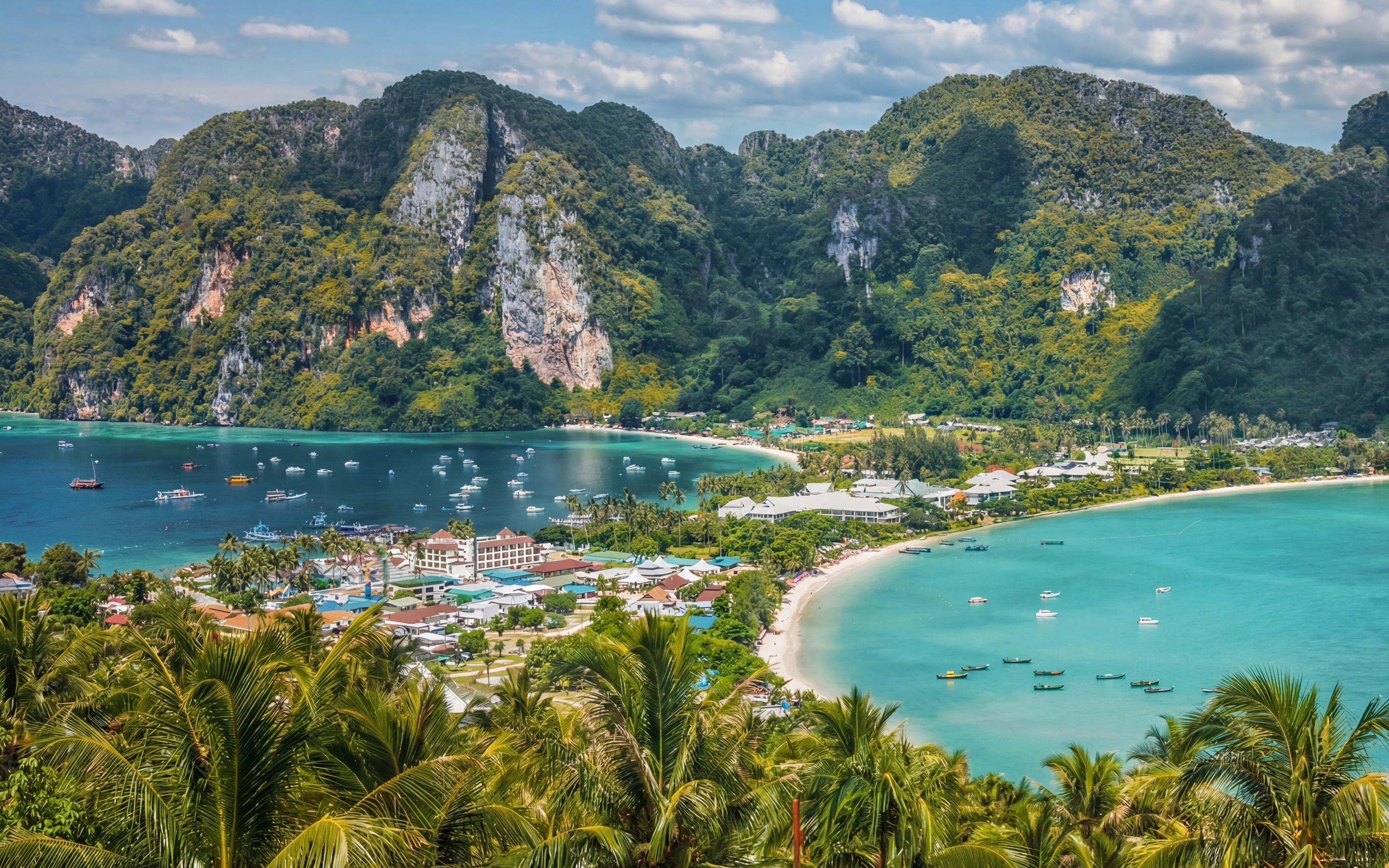
Krabi
Province:
Krabi
District:
Mueang Krabi
A grounded, insider guide to living in Krabi — from Ao Nang to Ko Lanta — covering lifestyle, costs, community, and who it truly suits.

Chiang Mai
Province:
Chiang Mai
District:
Mueang Chiang Mai
Chiang Mai blends mountain calm with creative energy — a haven for digital nomads, retirees, and dreamers seeking connection, culture, & balance.
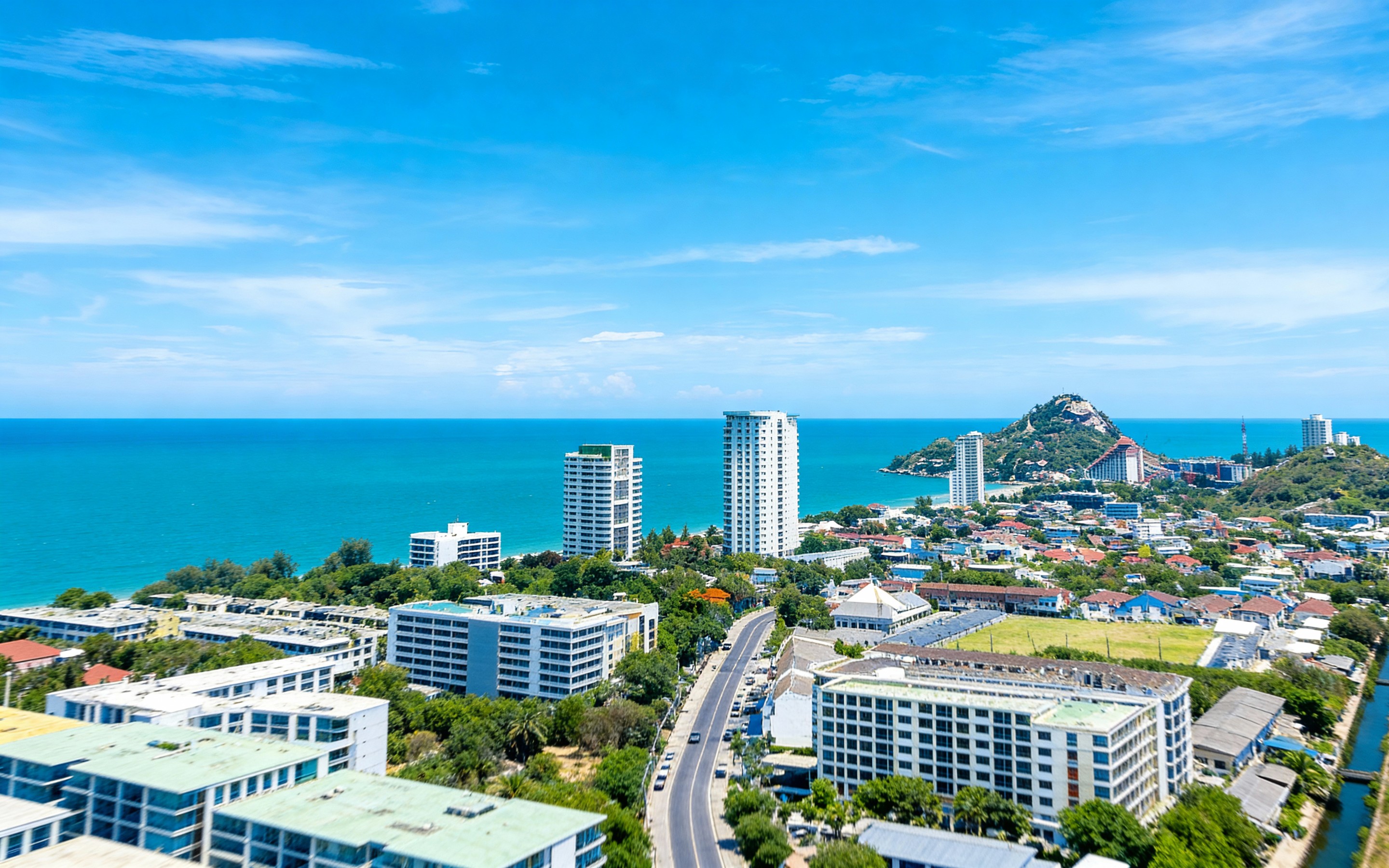
Hua Hin
Province:
Prachuap Khiri
District:
Hua Hin
Hua Hin blends seaside charm with luxury villas, golf, markets & sunsets. A modern, relaxed city perfect for expat life.

Krabi
Province:
Krabi
District:
Mueang Krabi
A grounded, insider guide to living in Krabi — from Ao Nang to Ko Lanta — covering lifestyle, costs, community, and who it truly suits.

Chiang Mai
Province:
Chiang Mai
District:
Mueang Chiang Mai
Chiang Mai blends mountain calm with creative energy — a haven for digital nomads, retirees, and dreamers seeking connection, culture, & balance.

Bangkok
Province:
Bangkok
District:
Bangkok
Your Bangkok Guide: Get the real picture. Discover the lifestyle, costs, pros & cons to decide if Thailand's bustling capital is right for you.

Chiang Mai
Province:
Chiang Mai
District:
Mueang Chiang Mai
Chiang Mai blends mountain calm with creative energy — a haven for digital nomads, retirees, and dreamers seeking connection, culture, & balance.
© 2025 The One Property Group - Address: Floor 16, 11 Soi Sukhumvit 39, Watthana, Bangkok, 10110 Thailand - All rights reserved.
© 2025 The One Property Group
Address: Floor 16, 11 Soi Sukhumvit 39, Watthana, Bangkok, 10110 Thailand
All rights reserved.
© 2025 The One Property Group
Address: Floor 16, 11 Soi Sukhumvit 39, Watthana, Bangkok, 10110 Thailand
All rights reserved.